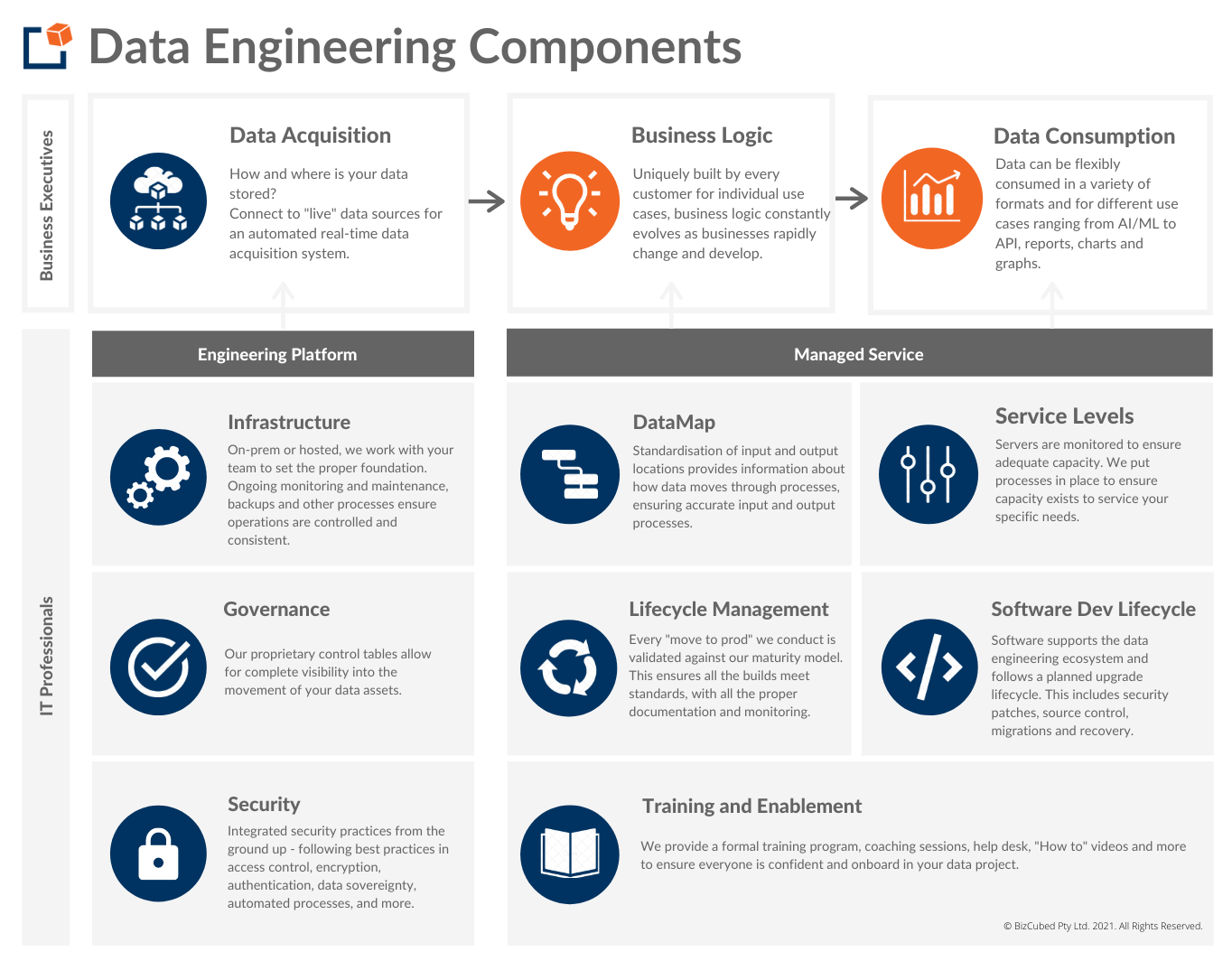
Most data leaders that I talk to understand that this is a commercial and cultural problem, not a technical one. In many organisations, the data teams have evolved out of IT or Finance and so are a step removed from the business problems. Despite the best intentions of all involved, business users often lack a working understanding of what’s realistic and achievable with data, whereas data professionals might not be able to connect a procedural output to the intended commercial benefit. In the mildest cases this can lead to misalignment on scope, timeline, priorities, etc., but in the worst cases these misunderstandings can cause policy breaches, professional conflict, and economic losses.
So, how can we create the alignment needed to set businesses on the path to their future state?
At BizCubed, we believe that operationally excellent data capabilities create better, faster outcomes for our customers. We focus on building operational capability because data that is rarely, occasionally, or even only frequently reliable will never be relied on and trusted by business teams. Business users must be able to depend on having the data they need when they need it. This means enabling them with the tools and skills to be self-sufficient, but also making it quick and easy to iterate on what’s already working. Driving down development cycle times, atomising business logic, enforcing documentation standards, instrumenting pipelines for robust monitoring, and leveraging metadata injections for governance and control are all great tactical steps that a data team can take to create a more disciplined and resilient data operation.
But as I noted above – this is a commercial and cultural problem, not a technical one. Let’s first define the problem. It’s true that there is often a knowledge and skills gap between data teams and business teams. There’s also a functional language barrier (don’t believe me? Ask your CMO to join you for a code review 🙂). Also remember that the tech stack is constantly evolving, data volumes are growing exponentially, and end-users are constantly developing their own workarounds using whatever methods they are most comfortable with (usually excel). Put it all together and you have a problem space that is very complex.
So how ought data leaders simplify this complexity to produce emergent outcomes? This is why at BizCubed we developed our unique Data Engineering Methodology.

We work with our clients to methodically catalogue their data-related tasks and processes, map them against this framework, and link to any available documentation. We use this register to highlight gaps and identify bottlenecks, then systematically begin closing them. In some cases, our customers ask us to take on the management and maintenance of these systems and processes, recognising that our distinct capability will create efficiencies and free up their key resources, giving them a competitive advantage.
The result of this process is operational excellence that can be communicated simply, understood widely, and relied upon consistently. The convergence of data teams and business teams is a natural consequence of the improved operational interfaces, producing a corresponding acceleration of the business’ strategy.
Message us "open source options"
to start exploring the right solution for you

Maxx Silver
Maxx Silver is the Business Development Manager for BizCubed. His love of people, data and building long-term partnerships makes Maxx a passionate connector of people and a driven salesperson. Follow Maxx on LinkedIn